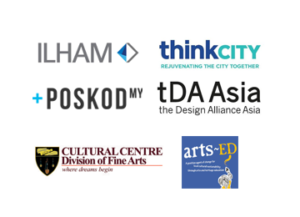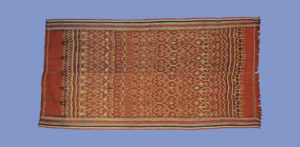Article by Rachel Leow, originally published in The Other Malaysia. Original article can be found here.
If history is about the construction of a picture of the past from its traces today, it is also about the interstices between those traces, which we might call historical silences. Silences enter the process of historical production at three moments: the moment of fact creation (when people write, film, photograph, build, paint or document a historical event); the moment of fact assembly (when these sources are collected into archives); and the moment of fact retrieval (when historians use these sources to write history).
Three moments of the historical process
The first is an epistemological silence: simply speaking, eyewitnesses of a historical event see some things but not others, or they write down some things and not others. (To put it another way, the camera frame is only so wide).
The second is logistical silence: archives are constrained by the interests of its institutions or by the size of the buildings they’re housed in; they are constrained as equally by wartime destruction as by moths and the passage of time; as equally by intractable problems of collation and categorization as by the simplest problems of sheer neglect.
The third is narrative silence: narratives are cast by a historian, who, however responsibly she draws upon her skills of synthesis, interpretation and analysis, can ultimately only write a given amount of history, and necessarily leaves other things out. It is a subjective aspiration to authenticity, but no less inauthentic for it: if done properly and rigorously, each resulting history renews a genuine claim to historical truth.
The Fourth Moment
But there’s a fourth moment that we perhaps think less about, and that’s the moment of present significance. Briefly speaking, we write histories that matter to us in the present — which isn’t the same as saying that all histories are equally fictive, only that our concerns with the past are (I would argue, unavoidably) shaped by present concerns. There isn’t space here to expound on this complex topic; suffice it to say: to someone whose grandparents survived Auschwitz, the Holocaust is historically important; to a people descended from a lineage of indenture, the history of black slavery is important; to a world that seems increasingly to hold liberty, democracy and equality as the most desirable (stated) societal goals, the history of the French Revolution can never be written too many times.
And so naturally, for Malaysia (a multicultural country barely in its fiftieth year of independence from colonial rule), histories of nation building, national identity, race politics and governance are, historically speaking, extremely important. For a government whose very authority is legitimized by a series of historical race-related contracts — the Pangkor Treaty in 1874, the social contract between the Chinese and Malays — it is naturally imperative that people should keep on fulminating about race today, and that history should continue being written on these terms.
Silence is tantamount to disremembrance
Sadly, the histories we do write, discuss and ultimately remember, necessarily displace the histories we don’t write, don’t discuss, and ultimately forget. These are the interstices, the omissions, the resounding silences that amount to disremembrance. We’ve looked at four junctures in the process of historical production at which these silences can occur. But of these four moments, the most impoverishing silences arise from the fourth, because the first three, to a large extent, cannot be helped. We can’t help that our perceptions of a historical event are subjectively constrained, nor can we change the fact that vast collections of source documents get destroyed over time. We can, however, affect what is presently significant — and consequently, what we choose to remember or disremember.
What, then, have we silenced and disremembered? Like many historical traditions around the world, our history is vocal about powerful, rational historical agents (political leaders, powerful men) and silent about powerless, faceless masses (disempowered men and women). All written histories naturally cluster around Great Men, Great Incidents, Great Turning Points; this is why, as Farish A. Noor writes, we “continue to repeat the cliché that Columbus discovered the New World, that Peter the Great modernised the Russian state, that Tunku Abdul Rahman was the founder of independent Malaya/Malaysia”.
But alternative histories of the Americas and the Russian state (and many others — India, Europe, Britain and its empire) have since been written — histories that challenged the prominence of all these ‘Greats’, moving past the skeletal political narratives that characterized the historical canon into ever more fruitful realms of cultural, social, women’s and subaltern history, and enriching our understanding of the past immeasurably in the process. What about Malaysian history?
Whither Malaysian history?
Malaysia’s history is stagnating. To understand why, we need to look more specifically at the kinds of things our history is silent about. Here are three (of many) examples.
Our history is vocal about Islamic Malays, and silent about pre-Islamic Malays. Contemporary Malaysian history is vocal about the Melakan Sultanate’s vanguard role in shaping ‘Malayness’, and silent about the other contemporaneous political entities also seeking to exert Malay identity and power (notably northern Malaysia, which was historically much more closely linked to the kingdom of Pattani in what is now Southern Thailand than Melaka; indeed Kedah paid homage to the Thai empire even into the colonial period).
Our history is vocal about the valiant machinations of Tunku Abdul Rahman and government in negotiating Merdeka and nation building, but silent about the contributions of non-Malay or non-political communities to the concurrent efforts of the development of Malaysian culture and politics — even though both were forging a ‘Malaysian’ identity in their own capacities.
The key connection between these examples is the premises upon which our government is built and perpetuated. A country’s history, and how it’s taught in schools, is clearly an important issue relating to citizenship — the teaching of the Second World War in Japan, or of the Vietnam War in America, are examples of this. History (Sejarah) in Malaysia similarly assumes a nation-building and indoctrinatory role: as the Ministry of Education unabashedly stated in 2002, “the main focus of the History curriculum is directed towards instilling a patriotic spirit”.
A disquieting alliance
In this light, the three examples I’ve given above are revealed as a gross abuse of the Fourth Moment. In a disquieting alliance between power and silence, histories are being silenced for the privilege of the presently powerful.
Why be silent on the history of pre-Islamic Malays? Because the all-important “Malay-ness” today is defined precisely in terms of its affiliation with Islam — “Muslim Malay” has been moulded into a tautology, and a history of the “non-Muslim Malays” would destabilize the notion of “Malay-ness”.
Why silence Kedah in favour of Melaka? Because the dominant political ideology of the Melaka Sultanate was absolute political loyalty to the ruler. The Sejarah Melayu (Malay Annals) expressly sanction the ruler to oppress his subjects with only minimal guarantees in return, and that sort of precedent is more important to governing powers today, who are recasting this monarchical loyalty as political loyalty to Barisan Nasional, than Kedah’s historical obeisance to the Thai kingdom.
And why the historical silencing of non-Malay or non-political contributions to national development? Because the government must reserve and preserve the political privilege of national development for itself, in order to legitimate the centrality of Malay-ness which, it is so often claimed, is paramount to the ethnic harmony and the stability of the nation.
This is the central discourse of our sejarah as promoted in schools: Malaysian unity is, historically-speaking, constantly under threat, and only absolute political loyalty to Barisan, as the sole champion of racial harmony and equal citizenship, will save us from ethnic anarchy. This is why we must not “forget race”: the government cannot afford for us to forget the key determinant of its authority (which itself is self-defined). Forget the pre-Islamic Malays, forget Kedah, forget the distinctions between Javanese, Sumatrans, Chinese, Indian and Arab Peranakans, Minangkabaus and Bugis, but for god’s sake, remember Malay-ness, remember May Thirteenth. History and its silences have become a tool of legitimacy.
What is to be done?
It should be clear by now that one of the reasons American and Russian histories have moved on from the ‘Greats’ mode of history is that their historians are free enough to do so — and by “free” I mean both that they are by large free of political repercussions of writing alternate histories and that they are intellectually free to develop even the notion of what it means to write alternate histories. In Malaysia, most students today will grow up with a conception of history as dry, moralizing and overwhelmingly political, and generally that there is not very much at all to it. By the time they reach a position to be able to access less “official” histories — and some do exist — they are simply not interested enough to bother reading them, let alone writing any themselves. This is either a great tragedy or a great success, depending on whether you are the government or not.
I want to be quite clear that I’m not espousing unscholarly anti-establishment polemics written under the guise of history, nor am I claiming that no good histories have been written of Malaysia. I am simply drawing attention to the fact that the writing of history benefits immeasurably from free and plural discourse: the entire institution of academia revolves around the proposing of historical interpretations, peer criticism and review, the collective refining of ideas and learning from as many people as possible. It’s through this exchange of ideas that other historiographies have moved on to benefit from the kind of vast opening and collation of alternate historical sources — oral accounts, documents of unofficial correspondence, reports and studies by grassroots organizations, personal letters, speeches, and so on — or even learning how to re-read existing political sources against the official grain by being more rigorously critical about them.
All this is contingent, I believe, on having the requisite political and intellectual freedom; and this is why history matters: it lies at the very heart of our ability to question the world around us, and to freely understand ourselves on terms that we choose for ourselves, in matters that are significant to us. Perhaps if we wrote a women’s history of Malaysia, we might find that Malay, Chinese and Indian women had as much in common with each other as with the race they are normally defined by. Perhaps if we looked at the relationships between cosmopolitan and rural peoples, we might find links within these groups that transcend politics, race and party machinations; we might even find the trappings of a genuinely non-partisan bangsa Malaysia. Who knows? No one: these histories don’t yet exist.
And this is why I argue that Malaysian historiography must see critically-political, cultural, social, subaltern and even postmodern approaches: let a hundred flowers bloom, as Mao said; and as Ranajit Guha added, we won’t even mind the weeds. Let us choose what we need to remember about ourselves, and write histories that matter to us; even if they’re methodologically flawed, groping awkwardly towards new sources, new approaches and paradigms, let them be written, so that we might discuss, remember and learn from them. It’s in this way that we can resound all the resounding silences in our past, and find a history of our nation that we can really be proud of.




